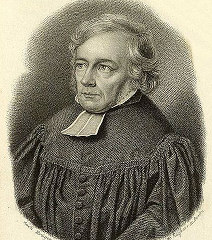What Are the Essentials?

Aristotle introduces his Nicomachean Ethics with these words: “Every skill and every inquiry, and similarly every action and rational choice, is thought to aim at some good; and so the good has been aptly described as that at which everything aims.”
While Aristotle identifies different intermediary goods on his way to his ultimate good (happiness), he underscores the importance of the question, “Good for what?” In Aristotle’s view, we can’t really define good until we understand at what goal the good aims. While his conclusion is problematic, his line of questioning is insightful.
Likewise, we can’t answer the question “What are the essentials?” until we first answer the question, “Essential for what?” One popular website asserts that, “The Bible itself reveals what is important and essential to the Christian faith. These essentials are the deity of Christ, salvation by God’s grace and not by works.”
While this sounds like a helpful enough answer, I wonder upon what basis the writer identifies these doctrines over others as essential. Are these intermediary essentials or they ultimate essentials?
Discussion
The Guy Who Taught Us Not to Interpret the Bible Literally

College freshmen are impressionable people. Once as a college freshman I heard a pastor who was pretty good with his Greek New Testament explain how Jesus encountered demons. The pastor interpreted the phenomenon literally. I was impressed, so I bounced my new-found knowledge off my dad.
Wrong forum! Dad was a doctor. He let me know in no uncertain terms, that whatever Jesus did, He did not heal diseases by eliminating evil spirits. That was thinking for the “quacks” and the “kooks.” As we talked, our distinct belief systems had a major collision. I backed off, but for the next several months, whenever the subject came up, my father took pains to instruct the family, so that we all stayed scientifically orthodox.
That conflict demonstrates the essential difference between conservative and liberal theology. True Liberal theology began with the German scholar, Friedrich Schleiermacher (1768-1834; the term used in Germany is “Historical-critical Theology”). Schleiermacher had a great desire to defend the Christian faith and an intense interest in Bible study. He was also fascinated with European philosophy and drank deeply from the well of German idealism.
Stellar intellect that Schleiermacher was, he spent most of his student discussions talking about the Christian faith with his unbelieving intellectual friends. His first book was, On Religion: Speeches to its Cultured Despisers. Grenz and Olson say, “None strove so valiantly to reconstruct Christian belief to make it compatible with the spirit of his age.”1
Discussion
Rules of Affinity, Part 5: Clarifying the Purpose
 Posted courtesy of Dr Reluctant. Catch up on the series so far.
Posted courtesy of Dr Reluctant. Catch up on the series so far.
In my so-called “Rules of Affinity” I am seeking to accomplish one main task. That task is to uncover the degree of affinity between any statement of a doctrine or part doctrine, and the biblical references which are brought in to support it or defend it. All of us know that Christians with different theological outlooks claim that their views are biblical. But in reality just saying “I believe such-and-such because it’s biblical” does not mean that it actually is biblical. It may be. But, for example, if someone says, “Calvinism is biblical” and someone else says “Arminianism is biblical” it stands to reason that behind both statements is the opinion (either informed or uninformed) of the one making the claim. No one ought to assume that any statement is proven by assertion.
As I was reading my own theology and thinking through the question of why I differed from this or that theologian, I concluded, naturally enough, that the main reason for my disagreements was because I believed my position was more in line with the Bible. That didn’t mean it was, but that was why I demurred. The words “God has spoken” seem to me to be the most momentous three words in the English language. I therefore wanted to know if what I believed and taught actually closely reflected what “God has spoken,” and how compatible were my theological propositions with the texts I appealed to. I did this by assuming a suspicious attitude towards my Theology. Hence, the negative application of the method was uppermost in my mind when it was first roughly devised. The negative use also became apparent when I began asking myself why I couldn’t accept certain formulations of doctrine by some of the great men I read. Almost immediately it dawned on me that the chiefest doctrines of the Christian Faith: the doctrines all Christians would say must be believed at a minimum to be a Christian, involved very straightforward appeals to biblical passages (hence, the Positive Application of the rules).
Discussion
Book Review - Education or Imitation?
[amazon 193676041X thumbnail]
Interpretation of Scripture, followed by right application, is the primary way that we are to be like God. This is not an issue of education. It’s an issue of imitation. (p. 23)
Discussion
4 ways to tell it's time to end a discussion
Body
Discussion
Rules of Affinity, Part 4: Negative Application Continued
 Posted courtesy of Dr Reluctant. Catch up on the series so far.
Posted courtesy of Dr Reluctant. Catch up on the series so far.
1. In this piece I shall match up more theological beliefs with these “Rules of Affinity” in order to show the negative use of those rules. I have tried to find respected sources to interact with so as not to be accused of soft-targeting. This is from G. K. Beale, A New Testament Biblical Theology, 32:
Adam was to be God’s obedient servant in maintaining both the physical and spiritual welfare of the garden abode, which included dutifully keeping evil influences from invading the arboreal sanctuary…(my emphasis)
Beale gives Adam a responsibility to guard the original creation from “evil influences.” But there is nothing in Genesis 2 or 3 which encourages this (the verb shamar in 2:15 can mean “guard” or “protect” and could have the serpent in mind, but nothing is said about “influences” plural). Certainly, God allowed the serpent into the Garden, but the only warning given to the man is the prohibition in Gen. 2:16-17. The serpent tempts Eve and Eve tempts Adam. It is Adam’s capitulation to his wife which is given as the reason he disobeyed God’s command (see Gen. 3:17. cf. 1 Tim. 2:14). Could Adam have ejected Satan out of Eden? Where is that indicated? And what of this talk of a plurality of “evil influences”? One will look in vain for such things in the texts Beale employs. We thus give the statement above a C4 rating.

Discussion